What to Do Before a Tropical Storm Hits
Tropical storms are not something to scoff about or take lightly. Unfortunately, some people who don’t take the pending storm seriously won’t be given a second chance or a redo button that they can push. Every year, hurricanes prove deadly for many while costing billions of dollars in destructive damage to homes and businesses alike. Let’s talk about what to do before a tropical storm hits.
Knowing what to do before and after a tropical storm could protect you, your family, and your home. People also make a few mistakes that you don’t want to get caught doing following a tropical storm.
Here’s what to do before a tropical storm hits, as well as what you should and shouldn’t do after one hits our area.
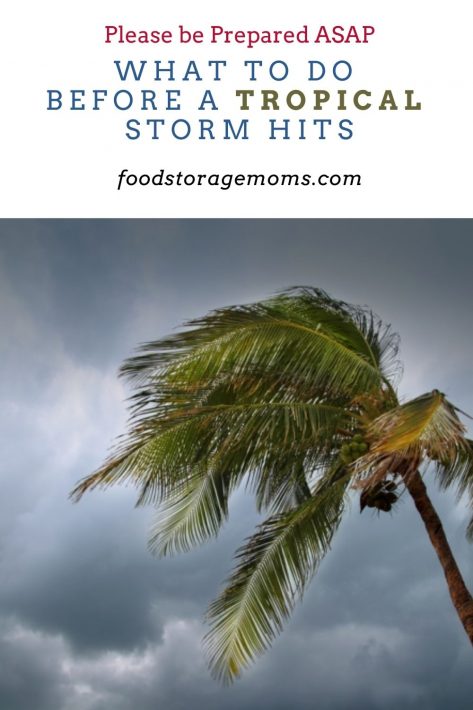
“Prepare Your Family For Survival” by Linda Loosli
Secure Your Home and Property
For starters, it’s a good idea to have your low or hanging tree limbs removed and bushes trimmed. You want to make sure they don’t cause significant damage to your home. Now’s the time to cover up your outside air conditioning unit to protect it from becoming damaged by flying debris.
Also, be sure to move all your outdoor belongings indoors or into your garage. Whether they’re your grill, patio furniture, bikes, toys, potted plants, or other items in your yard that may blow away.
You may have outdoor structures next to your home that need to be secured and protected too. To do this, use blankets as buffers and ropes to tie them down so they don’t beat up against your house. This is one of the most important things to do before a tropical storm hits.
Protect Windows with Storm Shutters
Next, be sure to protect all your windows, skylights, and doors. For a quick solution, use plywood that you can hang over the window and door frames.
But for future storms, I suggest you purchase shutters and impact-resistant glass for your windows for even more added protection.
Move Your Vehicles to Higher Ground or In the Garage
If you have garage space to park your vehicle, I suggest that you don’t leave it out in your driveway due to flying debris. If you don’t have a garage, you should move it to higher ground if there’s flooding or to an area away from trees. Ensure you’re not moving your cars close to any trees or around any power lines that can become downed.
Stock Up on Fuel and Power Up
Ensure you fill up your car’s gasoline tank when you hear that a tropical storm is heading your way. You don’t want to be caught waiting in line at a gas station as you scramble to get out of town if you live in an evacuation zone. Get a siphon pump to drain fuel from your vehicles and fill your generator if you need to refill that unit.
Ensure your generator is in good working order and you have plenty of fuel if the power goes out. Also, remember to charge your phones and have a power source for other electronics before the storm arrives. I have some power units from Goal Zero that can be charged using solar panels.
Unplug All Appliances and Devices
Don’t leave appliances, lamps, and other devices plugged into electrical outlets during the storm unless you need to for a CPAP unit or nebulizer. Consider storing them in a cabinet or closet away from windows and exterior doors to reduce the risk of flood or wind damage.
Move Important Documents to a “Safe” Place
Be sure to keep important documents, such as birth certificates, marriage licenses, insurance information, financial documents, and other paperwork, in a waterproof safety box. Many people store their jewelry, money, and other valuables in these boxes prior to a tropical storm.
Also, be sure to take inventory, including pictures, of all valuable items beforehand. That way, if anything goes missing or is damaged, your insurance company has a list and backup for your insurance claim.
Determine Your Shelter Room
When you’re determined and have decided to bunker down in your home and weather through the storm, you’ll need to seek out an interior room where you’ll find the most shelter. Your safest bet will be on the first floor of your home in the innermost room, away from doors and windows. Remember that roofs are often ripped off, so you may still be left vulnerable.
Have an Evacuation Plan
As part of your family emergency plan, you must also think about coming up with an evacuation plan and going over it with everyone in your family. If the tropical storm is to take place while you’re at work and your kids are at school, you must ensure that your kids follow the directives given. If your family is separated at a different time or place, you must agree on a single meeting location. All these instructions are to be followed as appropriate for the child’s age, and young children need special attention.
Gather Emergency Supplies
Having emergency supplies gathered in advance is also extremely important. Your family will need several days’ food (non-perishable) supplies, water, flashlights, a portable radio, batteries, cash, toiletries, dry clothing, and extra blankets to stay warm. Ensure you also have a first aid kit to handle most bodily injuries during a hurricane.
Obey Emergency Warnings
If emergency officials urge you to evacuate well in advance, for Pete’s sake, you better listen by heeding their warning. Failing to cooperate could put your family in extreme peril and mortal danger. You get the idea. Evacuation orders are something to take very seriously and should never be ignored.
Staying Safe Following a Hurricane
Okay, so now that you’ve taken the proper precautions ahead of the storm, it’s also crucial that you know how to keep your family safe after the tropical storm has struck. Being prepared is one thing, but knowing what you should and shouldn’t do after a hurricane could be the difference between life and death. These are a few ways that can help you stay safe:
- Never set foot into floodwaters (when forced to, wear a life jacket).
- Don’t attempt driving through flooded areas (your vehicle may stall or be swept away). My husband Mark worked in Tucson, AZ, years ago during their annual monsoon season. A family was swept away in their car when they tried to drive through a wash during a severe rain storm. In that city, many roads turn into aqueducts during heavy storms.
- Avoid using candles when possible (use flashlights that are safer). I like my solar flashlights, and I have them charging on my windowsills all the time so they’re ready when I need them.
- Watch out for downed or hanging power lines. Stay clear of any lines you see lying on the ground or hanging dangerously low to the ground.
- Don’t use any electrical devices that are left plugged into an outlet or have become wet.
- Wash your hands if they’ve come into contact with floodwaters since there may be sewage issues in the water.
- Don’t drink tap water until local officials deem it safe (drink bottled water instead).
- Throw out any food that has come into contact with floodwaters or has been damaged by a power outage (damaged food may look, smell, or taste normal, but it can still cause you to get sick).
- Never enter a building with damage caused by a hurricane unless officials declare it safe.
- Take care of any wounds immediately by using first aid supplies to prevent infection.
Final Word
These simple precautions and ways to stay safe following a hurricane are essential for you to know and practice often, especially when you live anywhere close to where a tropical storm could affect your area. What other key ways to prepare you and your home for a hurricane that may not have been mentioned? What do you do before a tropical storm hits? May God Bless this world, Linda.
Copyright Images: Hurricane Tropical Storm Deposit photos_5282764_s-2019

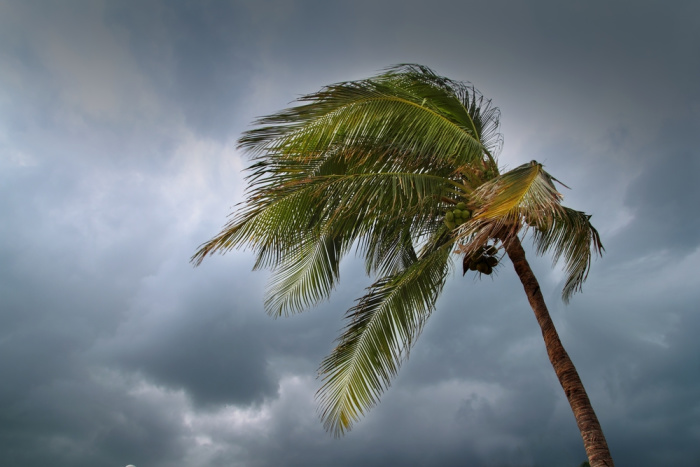

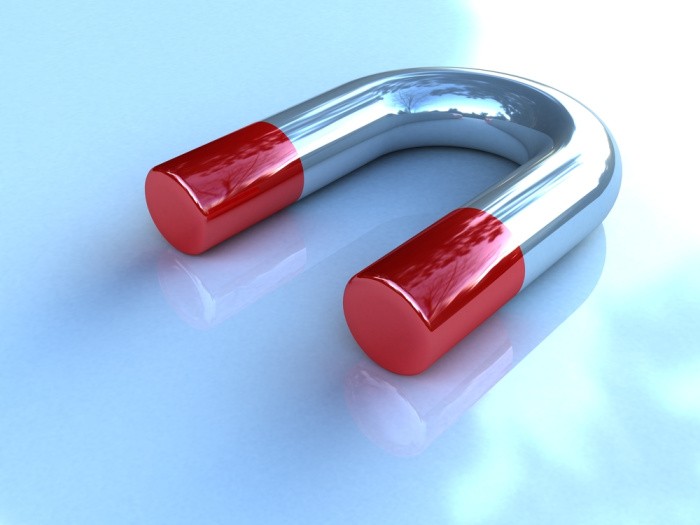



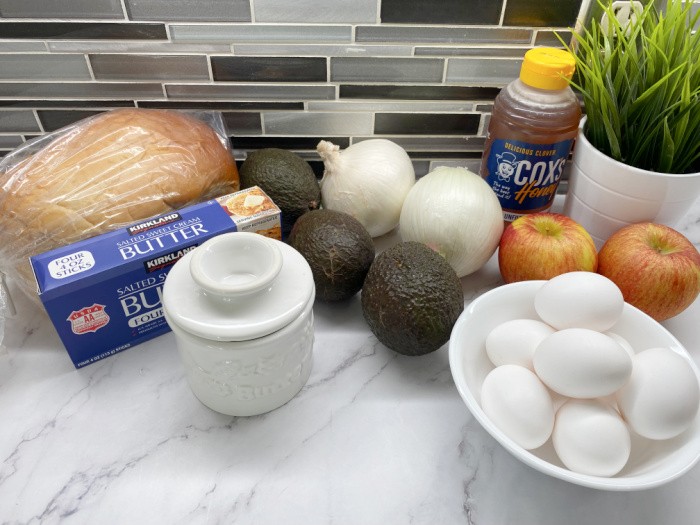
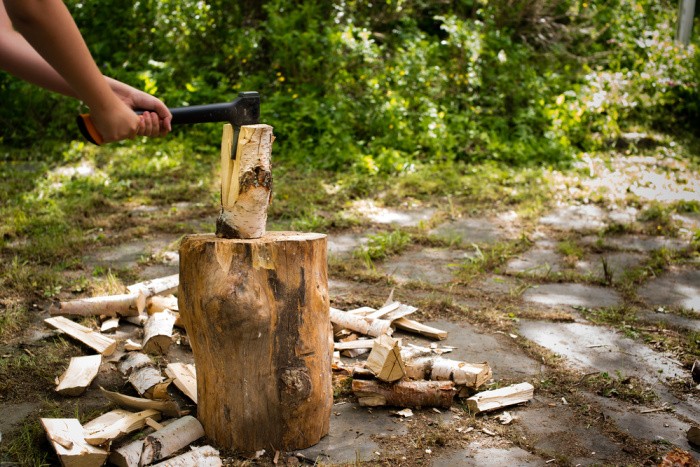



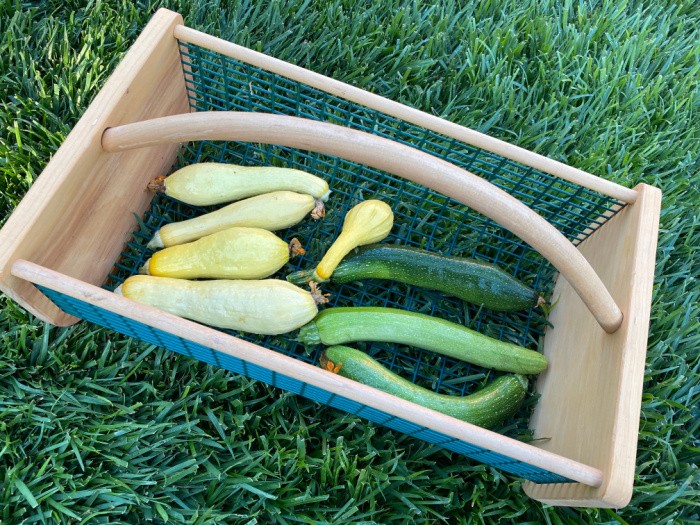


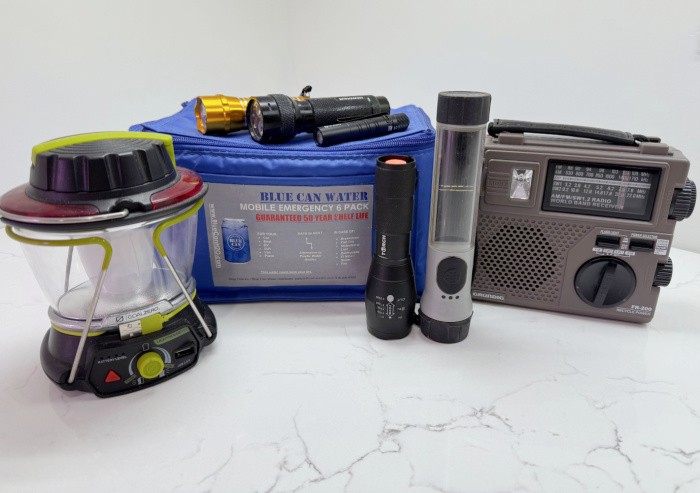
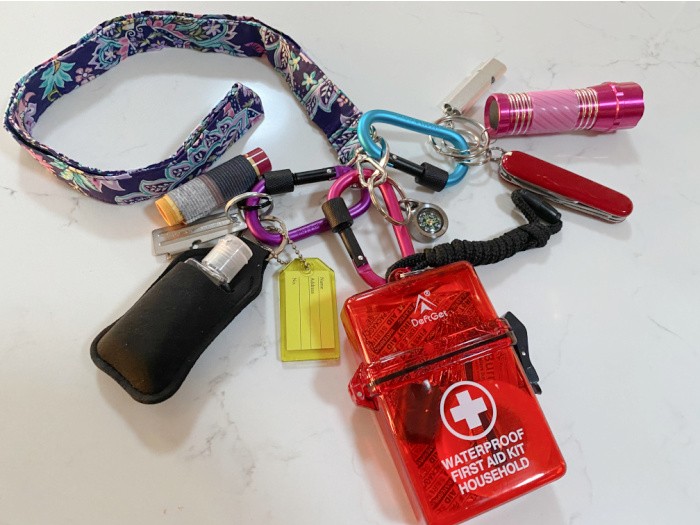





We don’t have Hurricanes where I live, but we do have Tornados. Pretty much the same applies. We have two rooms we can bunker dow in. One is the main bathroom. The other, our walk in closet. Both are in the center of the house.
Hi Deborah, wow, be safe!! I’m glad you have a plan! Linda
I try to always plan ahead. I don’t want to be left unprepared. It’s too dangerous at our age.
In case the place you all decided to meet is no longer there or valid, designate a second place to meet at the same time you designate the first place. Two places, just in case.
Hi Diane, I totally agree with you. We must have more than one plan. Great reminder. Linda
Linda ~
I almost didn’t read this post. Here in the Pacific NW, we don’t have “tropical storms”!! I am glad that I did read it, though, as most of the tips are appropriate for any storm. We get windstorms that can cause a great deal of damage and of course, we get lots of rain on the west side of the Cascades!
I don’t have a garage so my poor car is going to have to withstand anything thrown at her! If I have to evacuate for some reason, I have my 3 go bags so it will be a relatively easy evacuation. I would sorely miss many things that I own (or that own me!!) but that is why I have an inventory done.
A suggestion for inventories – 1) take photos; 2) write the inventory; 3) every time you purchase a big ticket item (TV, furniture, etc.) take photos of the receipt and model/serial numbers; 4) keep everything on a cd or thumb drive or if you feel it necessary, print it out and keep with your important papers. Also, for insurance purposes, (I am sure most people know this if they have good insurance agents), have riders on your homeowner’s or renter’s policies for things like art work, jewelry, antiques, guns, etc. Some things may need to have an appraisal to set the value. Don’t wait for a loss to have that chat with your insurance agency. Also, talk to your agent to make sure you have replacement value coverage.
Hi Leanne, I’m so glad you mentioned this about taking an inventory and pictures. I know a family that never raised the value of their home and had a fire! They lost everything but the ground. They rebuilt but wow, what a learning curve. Great comment! Linda
I know I have mentioned this before but it needs to be repeated! When I was 12, our home burned to the ground. We lost everything. It took weeks to create an inventory going room by room. And I know not everything was listed. Then, during a forest fire in 1994, my parent’s home burned. Dad was able to save much of the important papers and photos because he had a few days notice of imminent evacuation. BUT, there was no inventory. So, my siblings and Dad and I sat down and went through room by room. It was tedious and time consuming.
Not only are photos and documentation necessary for replacement values but everything needs to be updated OFTEN. I do mine routinely when I purchase something new but I also go through my inventory every 6 months as I may dispose of things. I know that in my parent’s situations, they were told to write down even how many pair of socks they had!! I think that may take it too far but…I don’t want to have to redo my inventory just because a pair of socks got a hole and were tossed or I bought a new package of socks with 6 new pair!! But, I do go through my inventory and make changes every 6 months or when I make a big purchase such as a new TV, new recliner, or that sort of thing. Much of what I have is not valuable but it is mine and it will cost me $$ to replace.
Hi Leanne, I totally agree! Linda
When you are laying in emergency supplies remember fuel for your emergency generator and a siphon pump in case you need to drain fuel from your vehicles. And while you are stocking up remember to get mylar bags, O2 absorbers and Mason Jars with lids and rings.
Hi Ray, great comment. Are you able to get any canning jars or lids where you live that aren’t overpriced? The siphon is a great reminder. I’m going to add that to my post. Love it, Linda
Linda, our local Ace and Tru Value hardware stores still have mason jars, rings and lids. And the last time i checked so did Walmart and our local grocery stores. I guess I’m lucky in that regard, especially since so many Prepper live around here.
Hi Ray, wow! That’s a gold mine, literally! Linda
Thank’s for the info. And yes I’m
Ready, especialy here in Puerto
Rico. Where we a lot of storms.
To all…STAY SAFE!
Hi William, oh my gosh, stay safe!!! Puerto Rico has had more than its share of storms. I love hearing you are ready!!! Good job!! Linda
Linda –
When you hear a hurricane is coming fill up your gas tank(s) and keep them as full even if it means filling it up a few times. You want to do this in case your evacuated, gas stations run out of gas, if the power goes out the pumps won’t work.
Freeze water in plastic pop, energy drink, juice, whatever bottles then you can put them in your refrigerator if the power goes out to keep your items cool.
Keep a flashlight by your bed and there you sit in the front room/office/kitchen in case the lights go out.
Hi Barb, great comment, thank you. People assume the gas stations work even when the power is out. The stations I interviewed in Southern Utah did not have generators for back up. Only the grocery stores. Only one grocery store is really equipped for a power outage in Utah. Its a store called Harmon’s a family owned company. Now if we had a grid down their generators can only go so long. No way to get more fuel for extended periods. Great tip on freezing water to keep the freezer cold. Love it! Linda
Linda, you had another excellent article about hurricanes. Most of the emergency prep is the same for many emergencies. We all need to personalize for our situations and local environments, as you keep reminding.
Also, we need to keep some cash in small bills. When power outages and tech issues take down computers, registers, gas stations and everything, cards do not work.
Linda, keep doing your excellent work! May this community continue as well, and blessings to you all.
Teddy
Hi Teddy, thank you for your kind words, my friend, that means a lot to me. You made my day! You are so right we need basically the same things for almost every disaster or unforeseen emergency! Who would have guessed we would have a worldwide internet glitch, well we all did because we’re preppers. Luckily it was a coding issue at least that’s what we’re hearing. Cash is king when there is a power outage. Great comment, Linda
Thank you, Linda! May you have a beautiful day,
Teddy